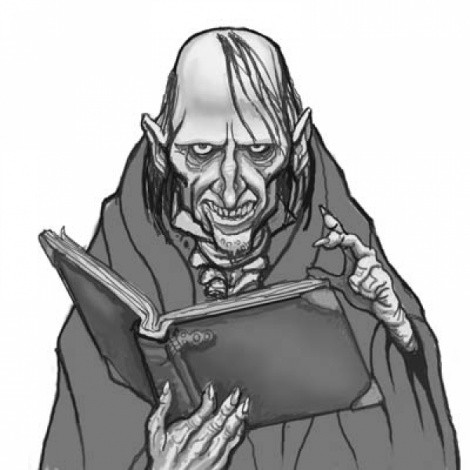
It’s just a short sentence in a single obituary, but the experts all agree it will be a gigantic leap for the popular genre as a whole. The sentence appeared in the April 26, 2009, edition of The Salt Lake Tribune, near the end of an obituary for a 52-year-old woman: “She married a couple of losers along the way—later jettisoned.”
This is something completely different, something entirely new in the world of obituaries. It is more than a breakthrough; it is a paradigm shift of the highest order. Up till now, the obituary genre has been defined by conventions as rigorous as those that govern the sentimental verse of a greeting card. Obituaries have long been forums for euphemisms, exaggerations and comforting fictions.
Thus, the beloved mother, kindly grandpa or darling niece who has passed away after a courageous (or valiant or brave) battle with some terminal disease (usually cancer), who loved the Gospel is returning to Heaven for a joyous reunion with grandma, spouse, siblings, cousins, et al. The deceased invariably has a keen sense of humor, a wonderful smile and loved to horse around with grandchildren at the family cabin. He or she was expert at knitting, composing sonatas or putting up the storm windows.
The fictional world of obituaries is a nice place to visit every morning. Of course, this fictional world is both circumscribed and inhabited by certain realities: date of birth, date of death, and names of parents and survivors, whether siblings, children or family pets. It is the ineluctable facts of life and death that bring us back day after day to the obituary columns. OK, let’s see, who is my age, who’s younger, what names do I recognize, where do I now stand in the arbitrary lottery of existence?
Occasionally, there are some good chewy morsels in the celebratory mush, some hint of bitter divorce or heartbreaking loss. Or an accompany ing photo might give a glimpse into the quirks of character or leave you with a lingering image of a life well lived. A recent favorite was a photo of the deceased dancing with his wife, a welcome departure from the by-nowstandard side-by-side depictions of the dearly departed in flaming youth and crabbed age.
But now! It’s a whole new ballgame. “She married a couple of losers along the way”—what a delicious put-down of those matrimonial false starts. Even better, the curt dismissal of “later jettisoned.” Just one sentence, and yet I feel as though I know this woman better than the hundreds of people whose obits I have read through the years. Good for her, I want to say.
After such bracing truthtelling, the standard obit leaves me cold. I’m no longer content to be left wondering why a former husband (only rarely a former wife) has been conspicuously deleted from the obit. Now I want to know: Was he a loser? A deadbeat? A scoundrel? A serial killer? Or worse?
It would be edifying to get down to some real brass tacks in other aspects of the dead person’s life. Start with the cause of death. Invariably, if the cause is specified, it is takes the form of “X passed away after a courageous battle with cancer.” I’ve noticed that inflation has hit the battle against cancer, and that now X passes away after a very courageous battle,” and more often than not, he or she passes away after a “very courageous and valiant” battle. I expect any day to read that X has passed away after a “very courageous and valiant and brave battle with cancer.” I agree with the ancient imperative to speak no ill of the dead, and perhaps everyone who succumbs to cancer is courageous, but it would be refreshing to read that X (or Y) has passed away after a “cowardly and sniveling surrender to cancer.”
Although we don’t have to make an obituary an occasion for mudslinging per se, it would make for a change to read that X thought the Gospel was a crock, was infallibly morose and expected his or body would not experience joyful resurrection, but instead would undergo horrible putrefaction in a hermetically sealed coffin.
The change from fiction to truth in the obituary genre will have the added benefit of saving newspapers, as more and more readers turn to the obits for delight and instruction. Obits are not the same online. We need to see the dead laid out in their coffins of newsprint.